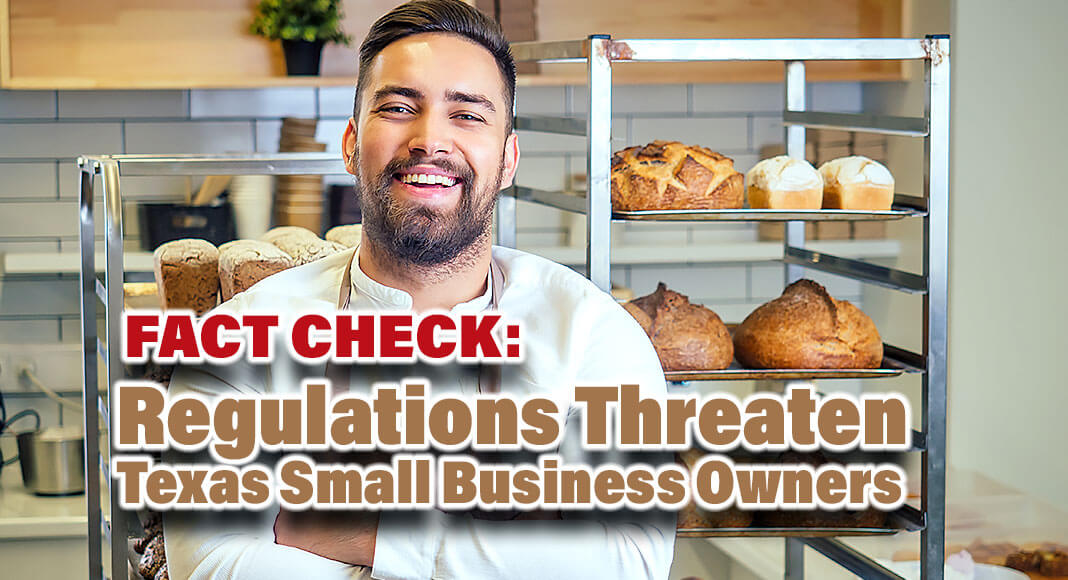
Texas Border Business
HOUSTON – In an editorial, the Houston Chronicle raised several questions about the authorities retained by city officials under the Texas Regulatory Consistency Act (HB 2127), incorrectly suggesting the bill could “corrode local power and chill innovative leadership at the city and county level.”
In the editorial, they ask: “Can we still require electricians to be certified? Can a city require door-to-door salespeople to obtain a permit?”
To answer simply and succinctly: yes.
Unfortunately, readers may be misled. The bill received bipartisan support in the House of Representatives and will soon be debated on the Senate floor. CLICK HERE for an updated, comprehensive fact-check. Excerpts are below:
FALSE CLAIM: Cities won’t be able to regulate electricians.
FACT: Authority concerning the regulation of electricians is not impacted. Occupations Code Chapter 1305, Subchapter E, Regulations of Electricians by Local Governments, gives explicit authority to regulate this industry and collect permit fees.
FALSE CLAIM: Cities won’t be able to limit door-to-door sales.
FACT: Under HB 2127, cities and counties retain their authority to address door-to-door sales through public safety, zoning, and other regulatory powers that are expressly granted by statute.
FALSE CLAIM: Cities won’t be able to address overgrown lots.
FACT: Under HB 2127, cities and counties retain their authority to address overgrown lots through public safety, zoning, and other regulatory powers that are expressly granted by statute. Furthermore, HB 2127 empowers “home-rule” cities to provide the same services and enforce the same regulations of “general law” cities.
FALSE CLAIM: Cities won’t be able to regulate payday and auto-title lending.
FACT: The HB 2127 bill text includes language that explicitly authorizes cities to enforce or maintain regulations related to payday and auto-title lending.
FALSE CLAIM: Cities won’t be able to bar employment discrimination.
FACT: Federal law prohibits discrimination against LGBT employees. The Texas Labor Code (Sec. 21.151) grants cities and counties the power to prohibit discrimination against LGBT employees. These protections are maintained under HB 2127.
FALSE CLAIM: Cities won’t be able to limit uncontrolled burns.
FACT: Under HB 2127, cities and counties retain their express authority to address fireworks, outdoor burning, and other fire suppression topics.
- See Local Government Code Chapters 342 and 352.
FALSE CLAIM: Cities won’t be able to limit unsafe waste storage.
FACT: Under HB 2127, cities and counties retain their authority to address solid waste, toxic chemicals, sewage, litter and water (including storage of).
- See Health and Safety Code, Chapter 361.
CLICK HERE for an updated, comprehensive fact-check on HB 2127.
Background:
Introduced by Rep. Dustin Burrows (R-Lubbock) and Sen. Brandon Creighton (R-Conroe) the Texas Regulatory Consistency Act would provide local job creators greater confidence in the regulatory landscape statewide while ensuring cities and counties retain their authority to address local concerns.
For the past several years, NFIB and members of the business community have sought to prohibit cities and counties from implementing policies that exceed or conflict with federal or state law related to employment leave, hiring practices, employment benefits, or scheduling practices. Several of our local job creators testified before both the House and Senate in support of the Texas Regulatory Consistency Act.
WATCH: San Antonio Small Businesswoman Touts Benefits of Texas Regulatory Consistency Act
About NFIB:
For 80 years, NFIB has been the voice of small business, advocating on behalf of America’s small and independent business owners, both in Washington, D.C., and in all 50 state capitals. NFIB is nonprofit, nonpartisan, and member driven. Since our founding in 1943, NFIB has been exclusively dedicated to small and independent businesses and remains so today. For more information, please visit www.NFIB.com.














